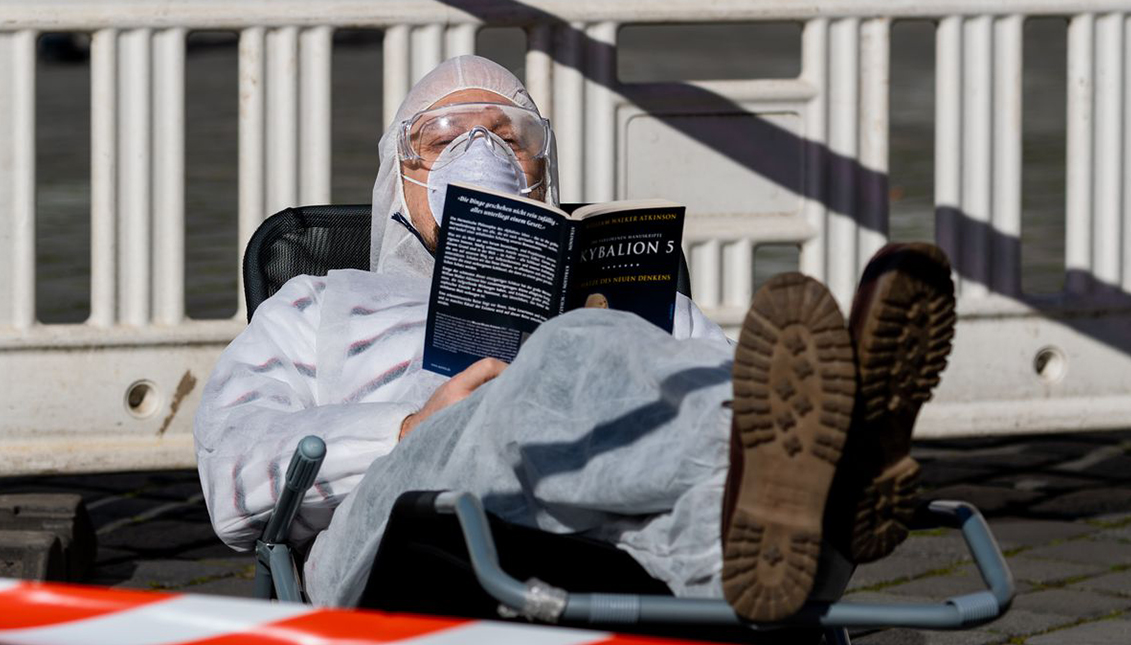
Bread, Circus and Sports: Culture at Serious Risk because of COVID-19
Educated people are more resilient and less malleable in times of crisis, but what kind of society do we want?
A few days ago, a well-known Spanish philosopher, Fernando Savater, warned in the national press about the dangers for Western democracies in these times of crisis and how the degree of protection given by a government to its cultural sector is a reflection of its level of civilization.
For the writer, cultivated people are better able to endure confinement because they know how to entertain themselves without having to leave the house to spend money: "Someone who is cultivated enjoys cheap things, such as books, or music, etc., which are far from being the most expensive things there are", he said.
His statements came at the most appropriate time, as the Spanish Minister of Culture, José Manuel Rodríguez Uribes, had just argued the lack of aid to artists in the country with a phrase from Orson Wells.
"First life and then cinema," said Uribes.
The importance that a country attaches to its cultural sector is directly related to the health of its democracy. One need only look at how other European countries have come to the rescue of cultural businesses and professionals, such as bookshops and cinemas, which are seriously threatened after being forced to close down by the quarantine.
Italy, which was the first nation to be hit hard by the coronavirus, has, curiously, been the country that's invested the most in helping its artists during the pandemic. The Italian government has earmarked an initial $142 million for culture and suspended the payment of taxes and deductions to companies that manage cultural facilities.
Germany also announced a $54 million fund for cultural enterprises and their professionals, which is expected to be distributed in payments of $1,725 per month. It's also been reported that bookstores will be the first businesses to open when the quarantine is over.
For its part, Macron's French government reserved one of its first allocations of $24 million for culture. In addition, it has committed to maintain the payment of all cultural services contracted and canceled by the coronavirus.
This is in contrast to the response of other governments to the crisis, both culturally and medically. Not only is Spain being questioned by its cultural actors, but also a government like Mexico's, which has decided the way to deal with the pandemic is to return the country to even more austerity. Above all, culturally.
President López Obrador seems to be convinced that Mexicans already have everything they need to move forward: "The culture of our people is not intangible as is often thought. It has always saved us and allowed us to recover from earthquakes, hurricanes, floods, epidemics, tyrannies, bad governments and corruption," he stated.
He also boasted of being a country, along with India, with very few infected (despite there being no mass testing) and of doing what "is possible" so that public debt does not increase. Meanwhile, the Secretary of Culture has taken few measures beyond rescheduling some activities and contractual commitments.
RELATED CONTENT
In Argentina, on the other hand, funding lines have been approved for cultural enterprises -libraries, cultural centers, and community organizations-, in addition to promoting digital platforms for their enjoyment during confinement. However, the amounts allocated are uneven and range from $60,000 for cultural spaces to $700,000 for libraries.
Unemployment is taking its toll on Americans - more than ten million people applied for unemployment benefits in recent weeks. In the midst of the health and economic crisis, the art market and, above all, artists are also having a hard time.
Fortunately, if there is one good thing we have, it is the number of philanthropic organizations supporting the cultural sector:
Institutions like the Getty Trust have launched a $10 million relief fund for Los Angeles County. The Helen Frankenthaler Foundation has also pledged $5 million to artists and small arts organizations affected by COVID-19 over the next three years.
"None of us could have imagined the far-reaching medical and financial disaster that has engulfed us as a result of this pandemic," said Clifford Ross, chairman of the board of the Helen Frankenthaler Foundation. "The art world must mobilize to support both its artists and those who work every day in its museums and cultural institutions. We believe this is the time to take a step forward.
The same goes for the Andy Warhol Foundation for the Visual Arts, which has pledged $1.6 million to artists in sixteen cities, including Baltimore, Chicago, Cleveland, Houston, Miami, New Orleans, Philadelphia and Washington, DC, and Anonymous Was A Woman (AWAW), which has launched an initiative that will distribute $250,000 in grants.
Thankfully, in the worst-case scenarios, citizens, employers, and foundations all grow.
If the alternative to protect the culture in this country came from the Trump Administration, anxious to have the NFL back and the stadiums filled, democracy would only be bread, circus, and sports.











LEAVE A COMMENT: